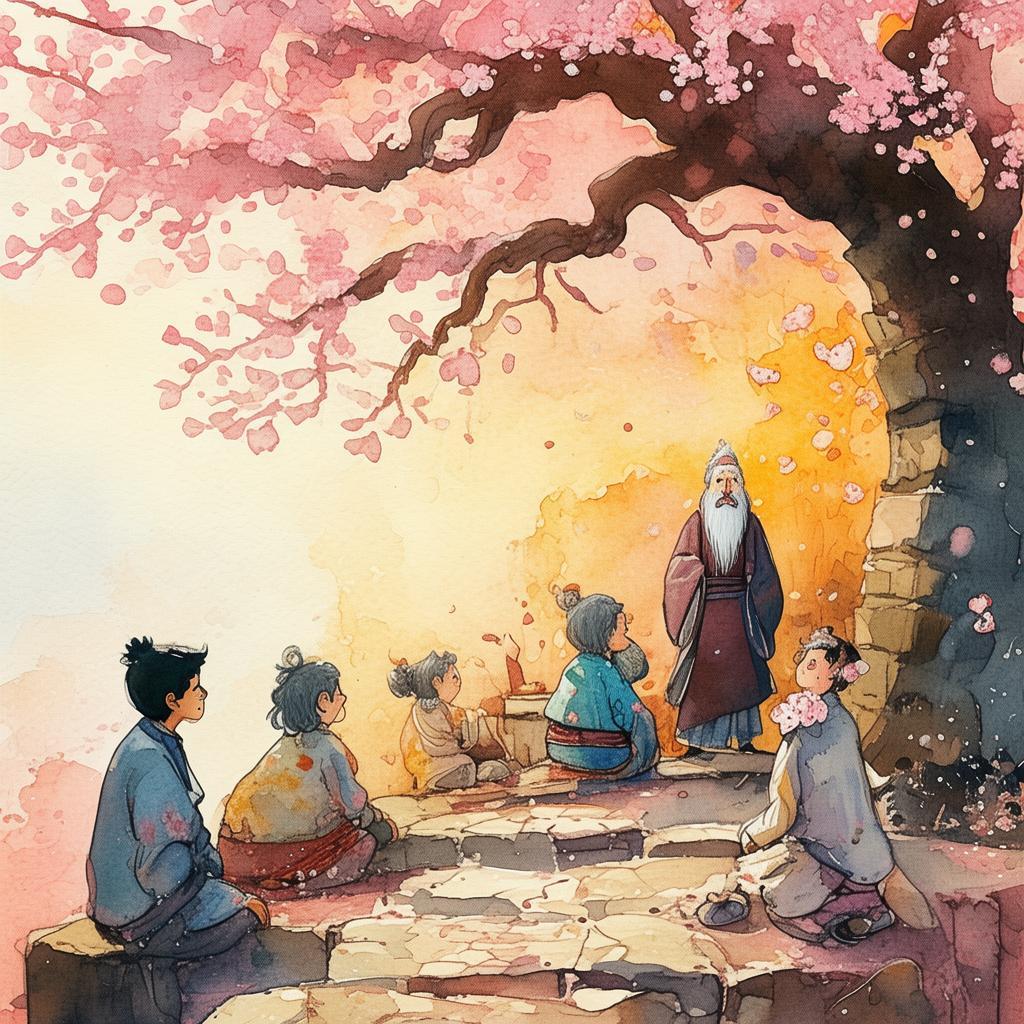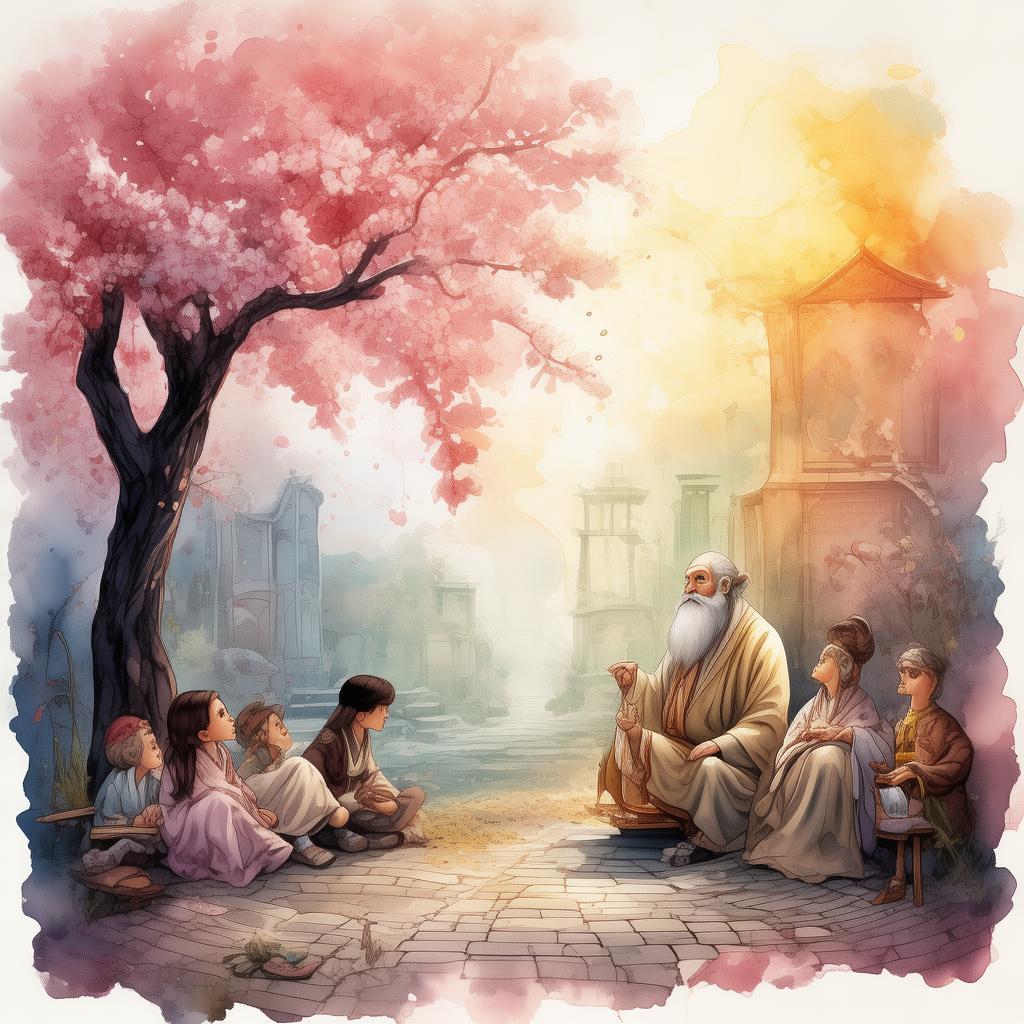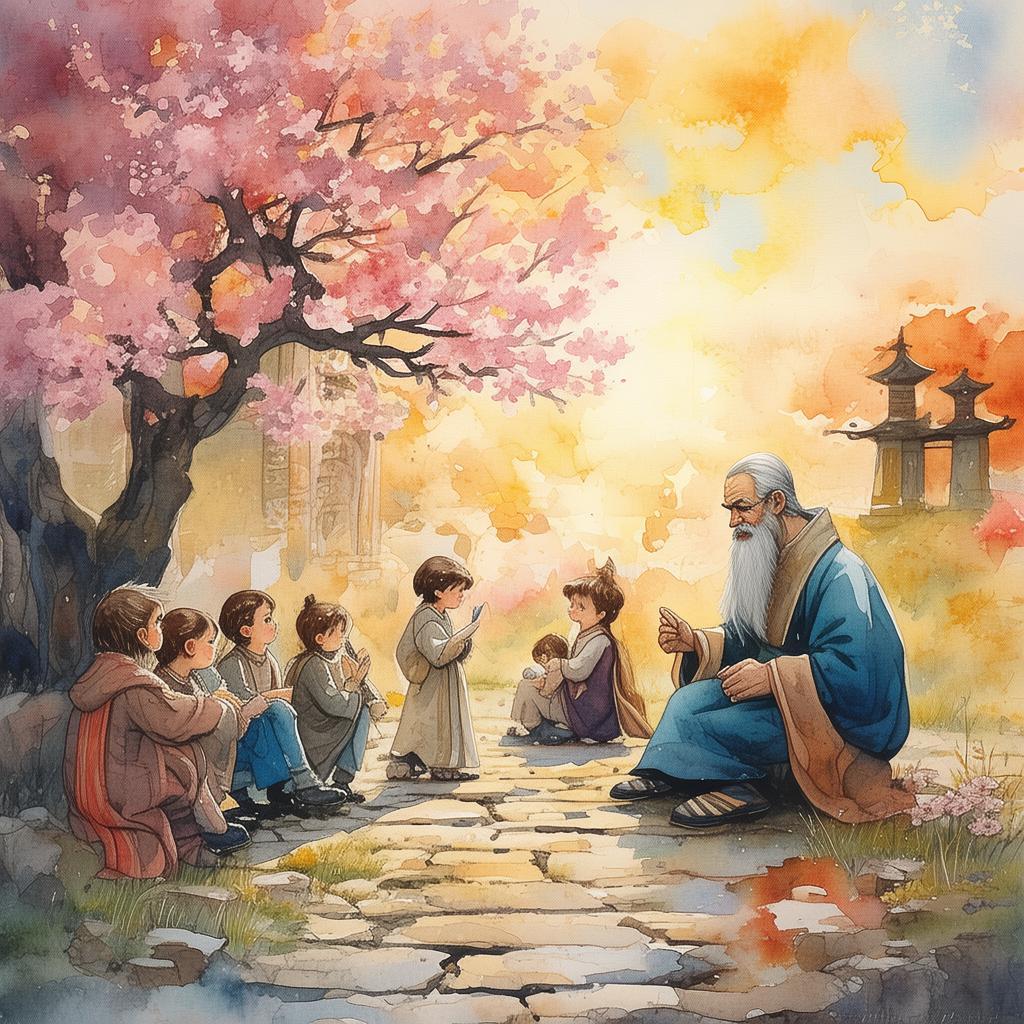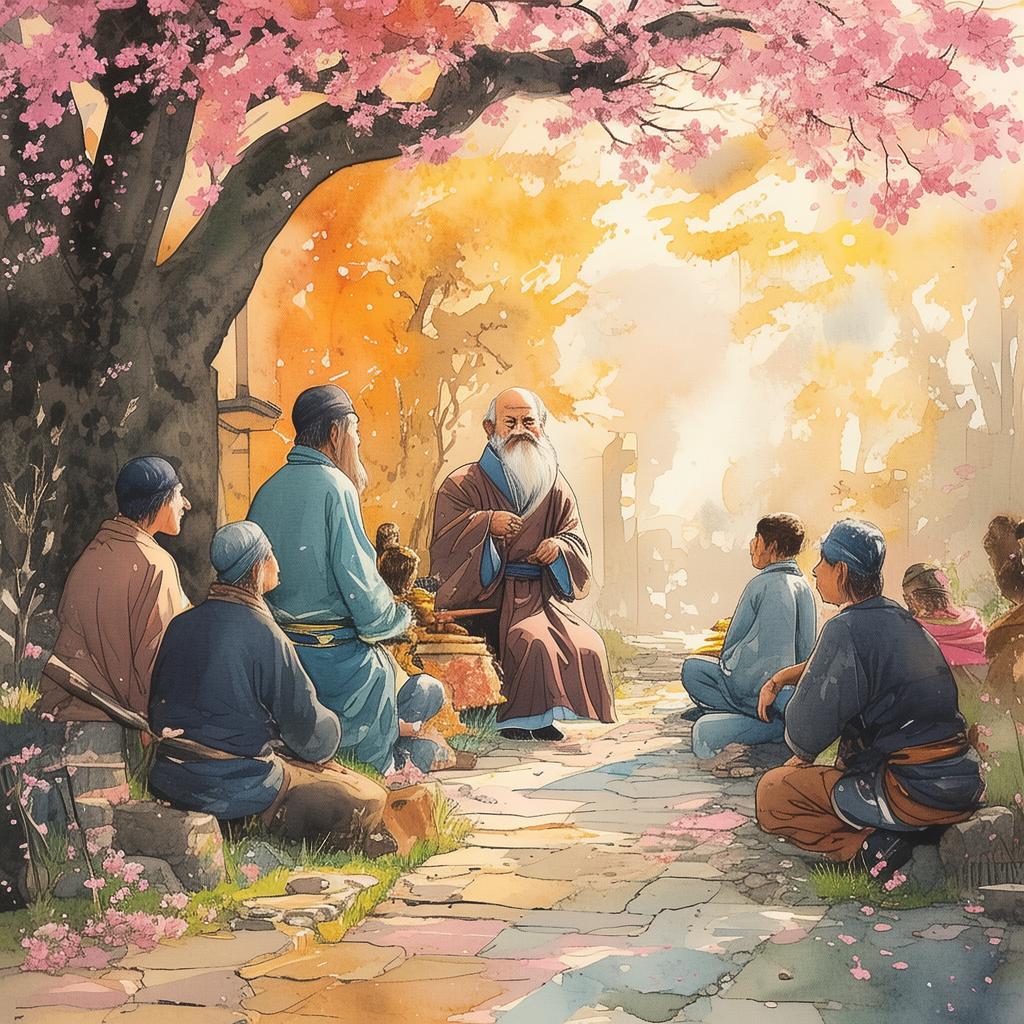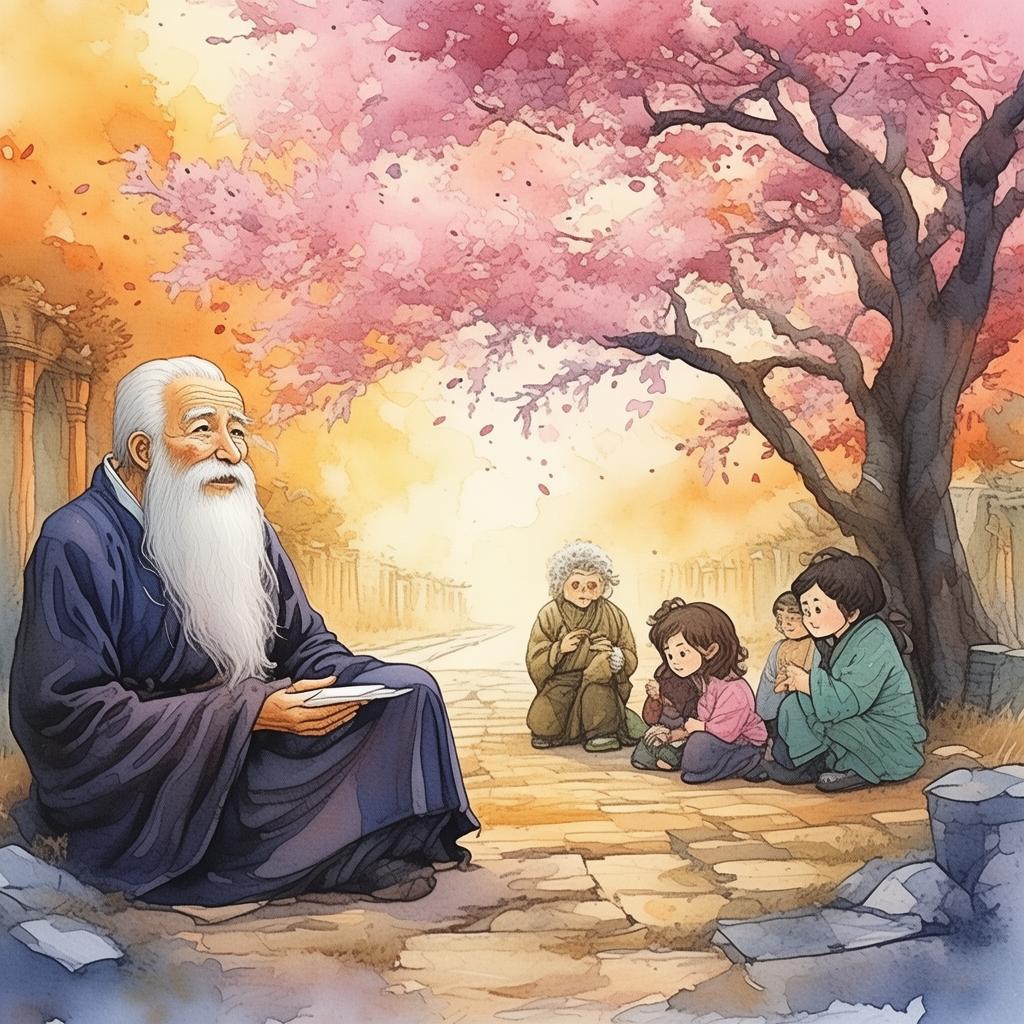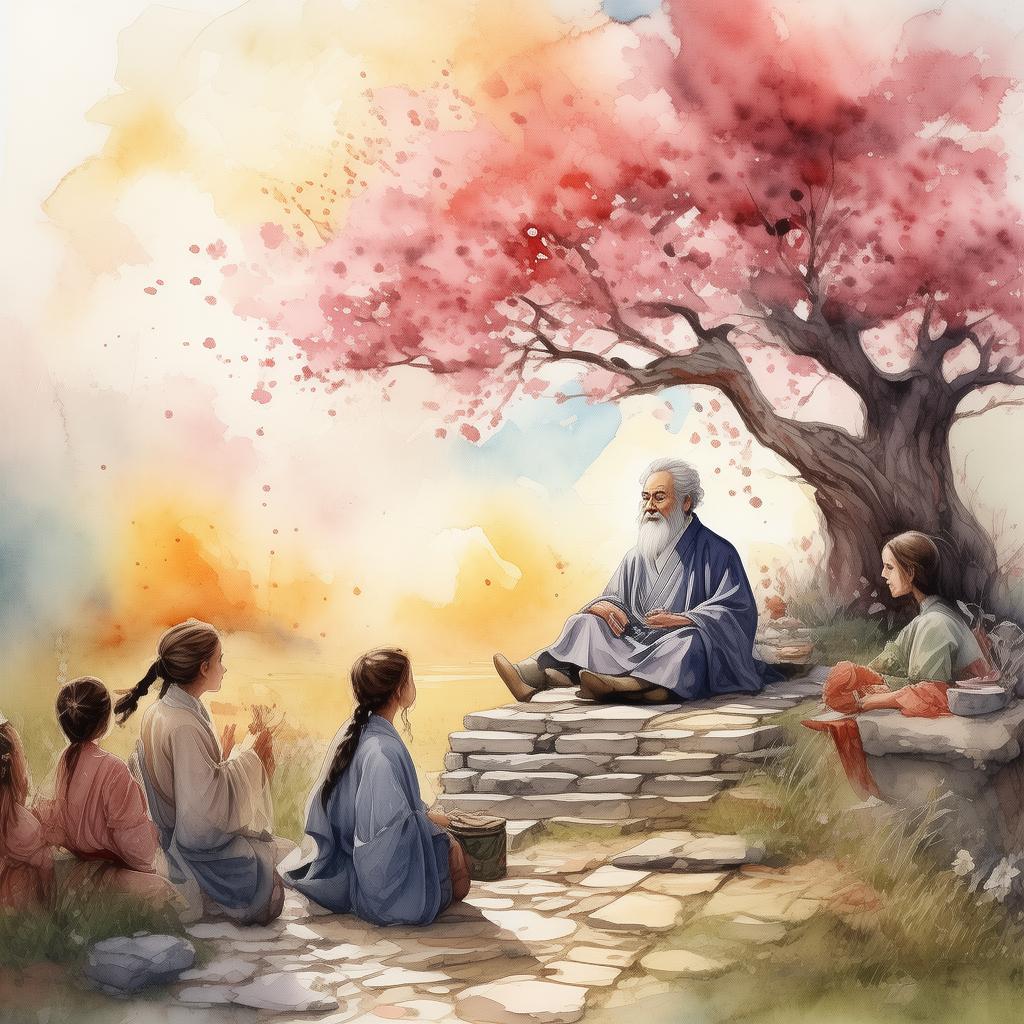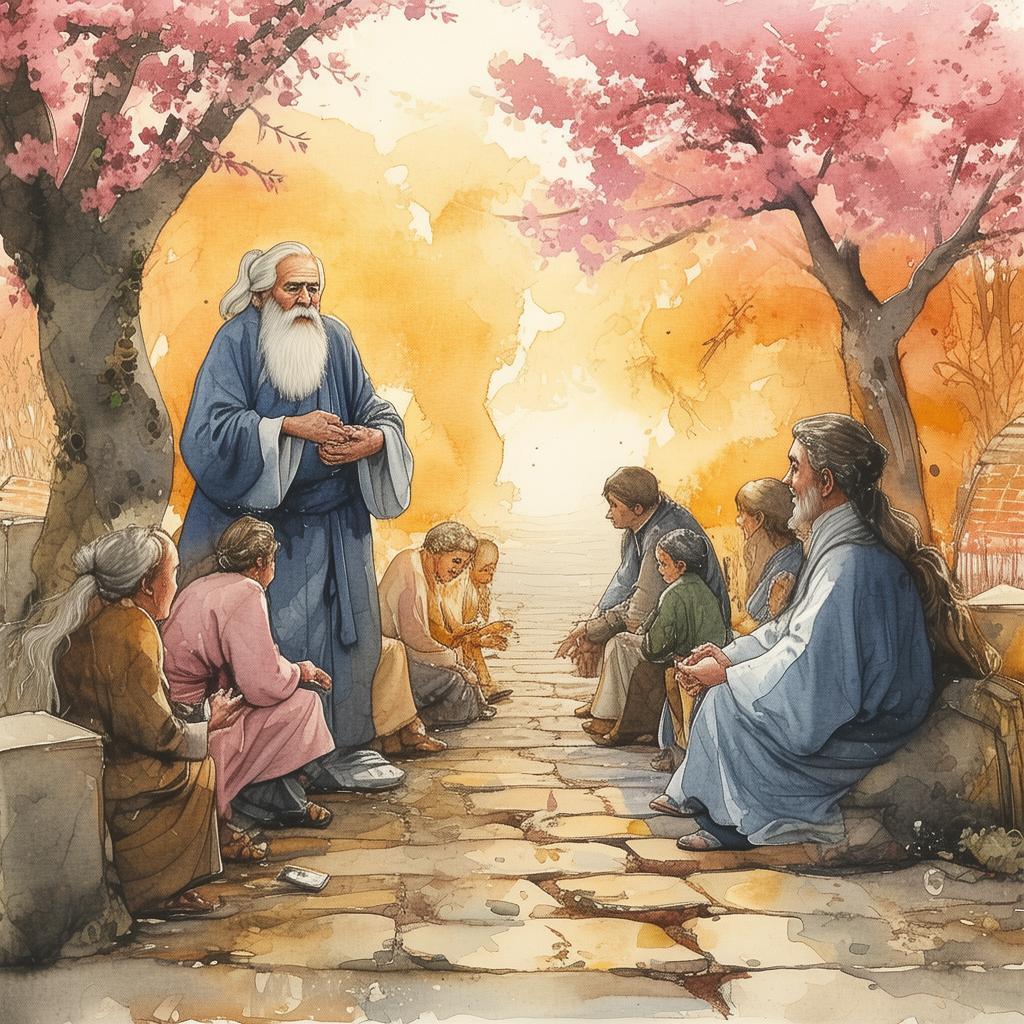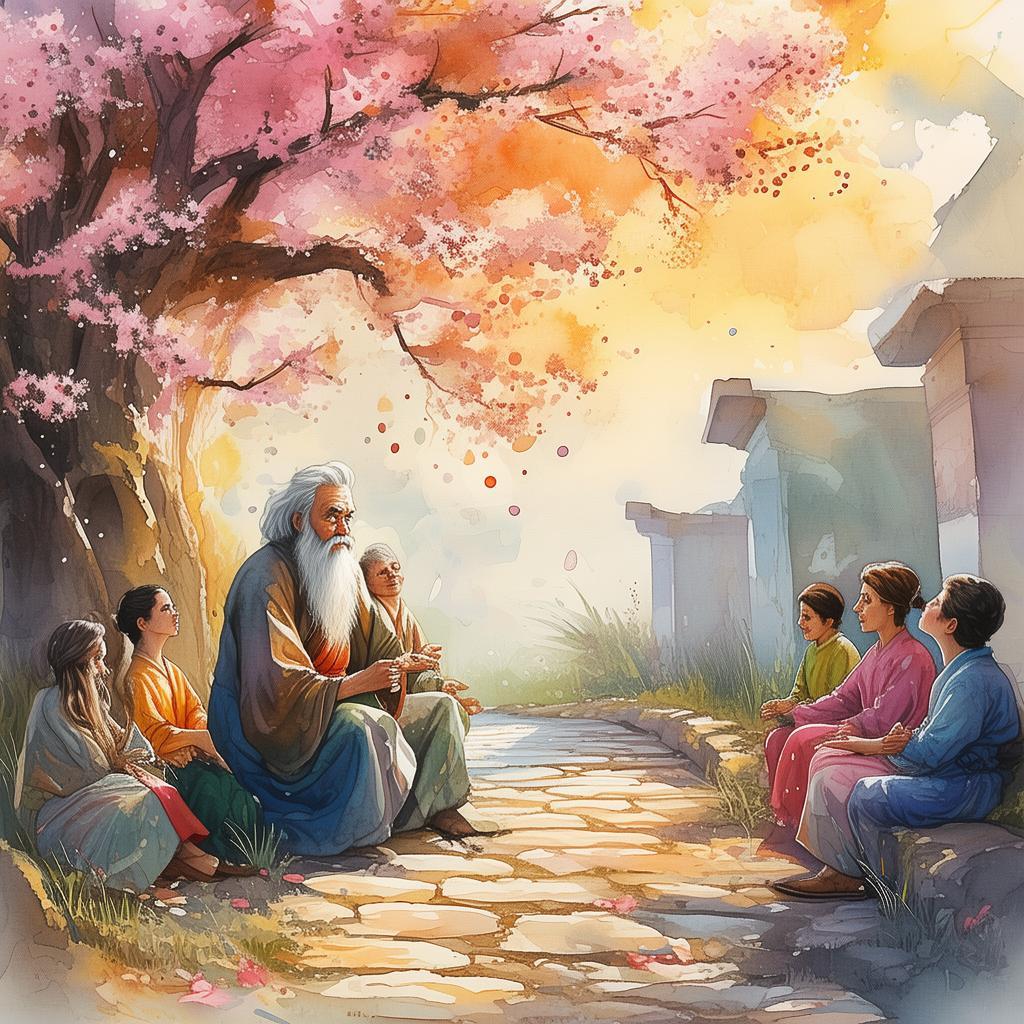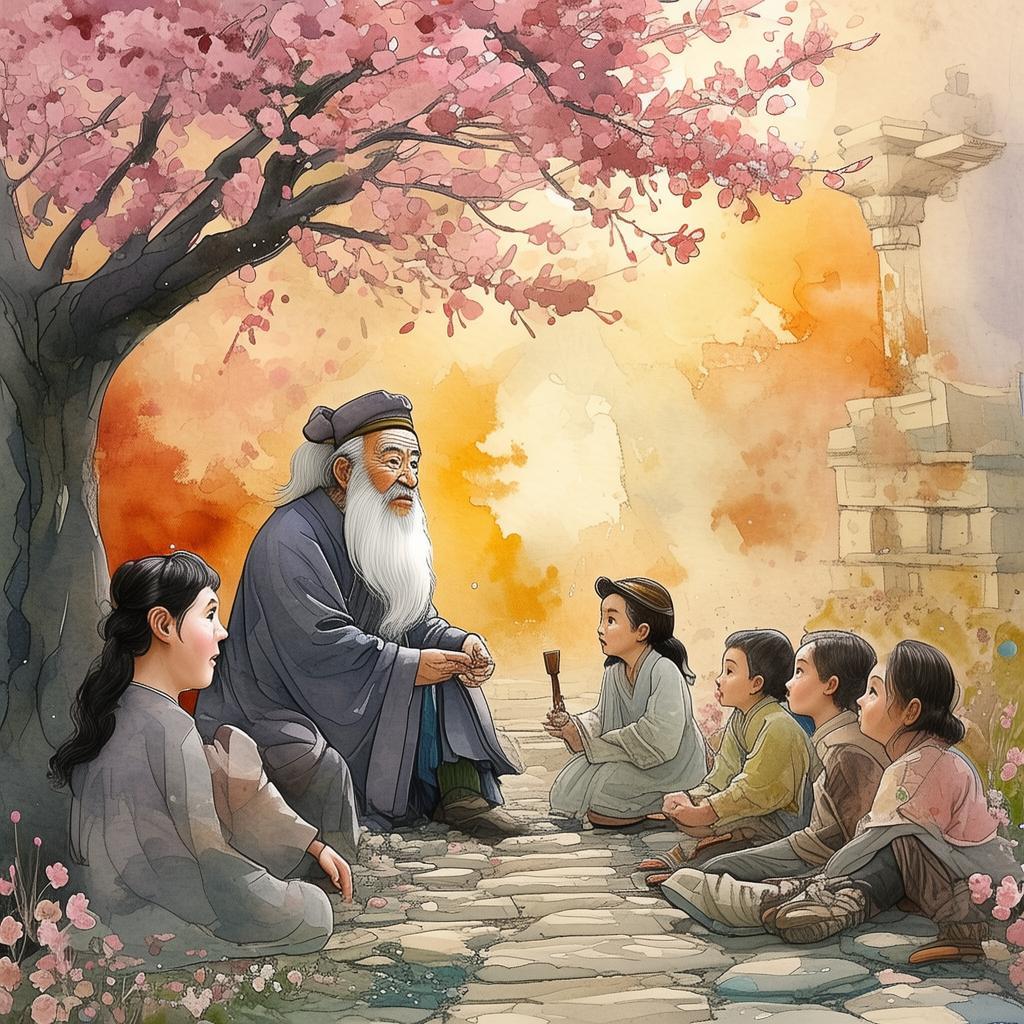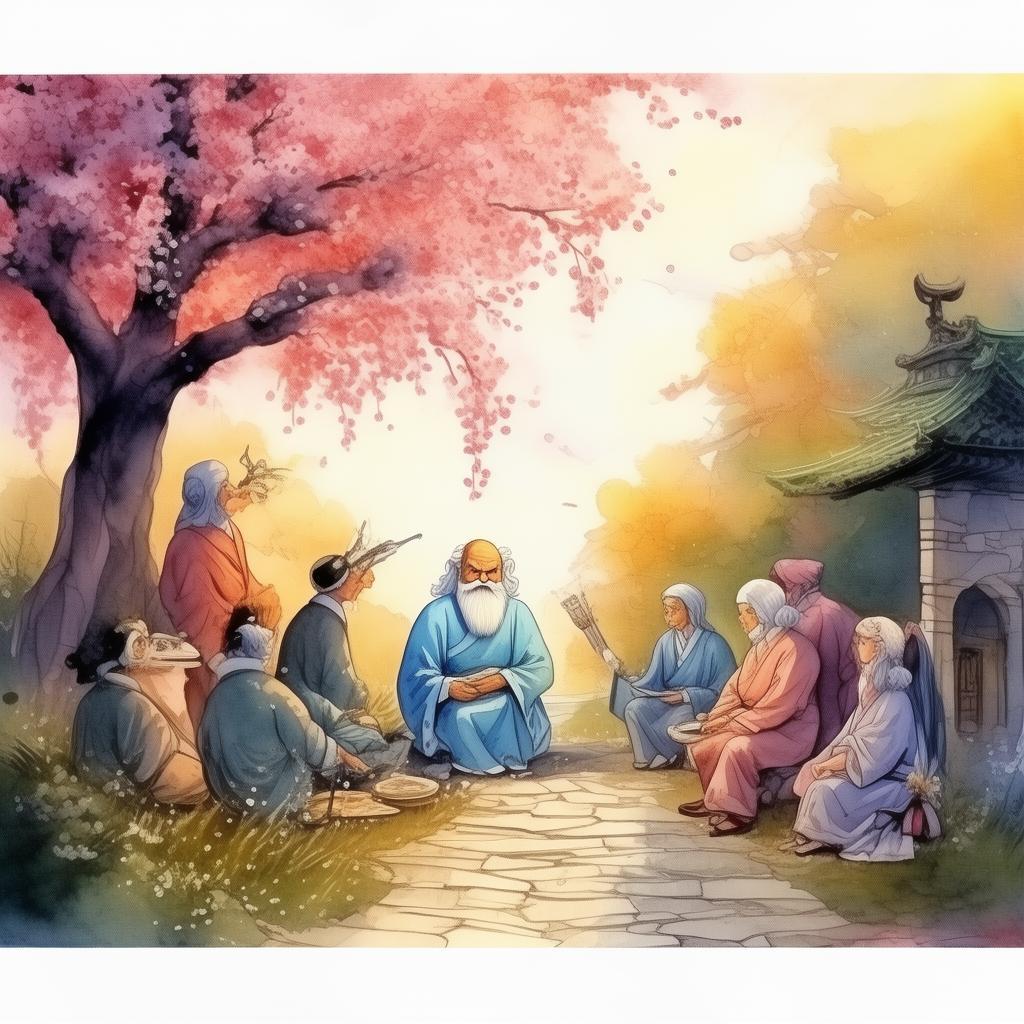The Empty Canvas Conundrum
In the bustling city of Chang'an during the Tang Dynasty, there lived an artisan named Li Qing. His workshop, nestled between the vibrant markets and the serene temples, was a testament to his talent. Li Qing was known for his intricate woodblock prints and delicate paintings, but he yearned for a greater challenge—a project that would not only showcase his skills but also leave a lasting mark on history.
One day, a mysterious patron approached Li Qing. Dressed in rich robes and with a demeanor that spoke of wealth and power, the patron offered Li a task that would define his career. "Artisan Li," the patron began, "I have before me an empty canvas, devoid of any inspiration. I seek a masterpiece from you—a painting that will not only reflect the beauty of our time but also embody the essence of a Chinese proverb."
Li Qing's heart raced at the prospect. The empty canvas was a blank slate, a canvas of infinite possibilities. He knew that this was his chance to create something truly remarkable. "I accept your challenge," he replied, "but I must know which proverb you wish to be represented."
The patron smiled cryptically. "The proverb is 'Empty Canvas Conundrum,' which suggests that the greatest masterpiece lies in the challenge of the blank canvas itself."
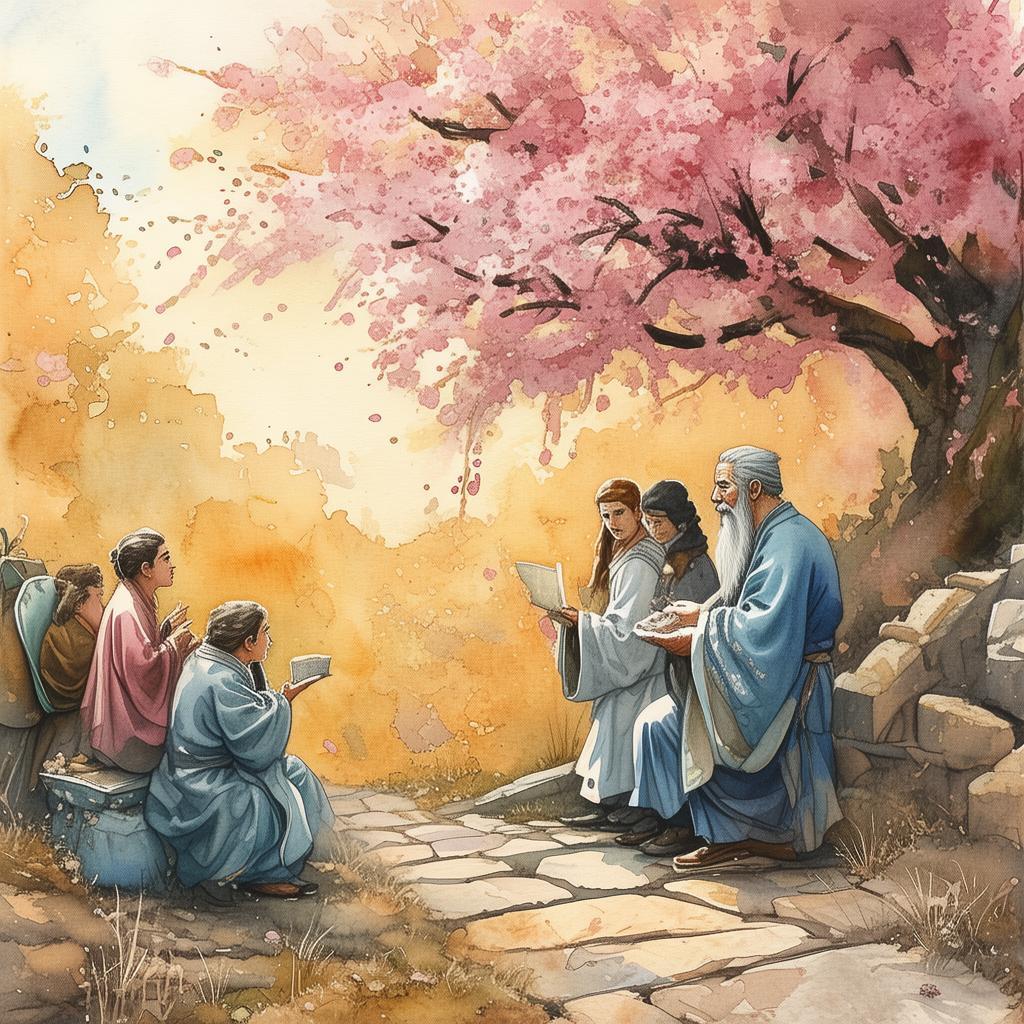
Li Qing pondered the words. He spent days in contemplation, sketching ideas and dreaming of the perfect composition. He visited the markets, the temples, and the serene gardens of Chang'an, seeking inspiration from the vibrant colors and the serene landscapes. Yet, every time he returned to his workshop, the canvas remained untouched.
One evening, as the sun dipped below the horizon, casting a golden glow over the city, Li Qing sat before the canvas once more. He reached for his brush, but instead of painting, he began to write. His fingers danced across the canvas, forming characters that would tell the story of his journey.
He painted scenes of the bustling markets, the serene temples, and the vibrant gardens. He depicted the faces of the people he had met, capturing their joy, sorrow, and hope. But as he worked, he realized that the true essence of the proverb was not in the images he painted, but in the story itself.
Li Qing's painting evolved into a narrative of his own life, the challenges he faced, and the lessons he learned. He depicted his struggles with the empty canvas, his moments of doubt, and his eventual triumph. The painting became a reflection of his own spirit, a testament to his resilience and creativity.
When the patron returned, he was awestruck by the masterpiece. The painting was a blend of images and words, a story that spoke to the heart. "Artisan Li," the patron said, "you have captured the essence of the proverb in a way that I never imagined possible."
Li Qing smiled, feeling a sense of accomplishment. "It is not the painting that matters," he replied, "but the journey that brought it to life. The 'Empty Canvas Conundrum' is not about the canvas itself, but about the artist's ability to find beauty in the blankness, to create something meaningful from nothing."
The patron nodded, appreciating the wisdom in Li Qing's words. "You have not only painted a masterpiece, but you have also painted a lesson for us all," he said. "The true art lies in the challenge of the empty canvas, for it is in the struggle that we find our true potential."
And so, Li Qing's painting became a historical masterpiece, not only for its artistic beauty but for the profound message it conveyed. The story of the Empty Canvas Conundrum spread far and wide, inspiring artists and artisans alike to embrace the blankness in their lives and to find the beauty within it.
✨ Original Statement ✨
All articles published on this website (including but not limited to text, images, videos, and other content) are original or authorized for reposting and are protected by relevant laws. Without the explicit written permission of this website, no individual or organization may copy, modify, repost, or use the content for commercial purposes.
If you need to quote or cooperate, please contact this site for authorization. We reserve the right to pursue legal responsibility for any unauthorized use.
Hereby declared.
